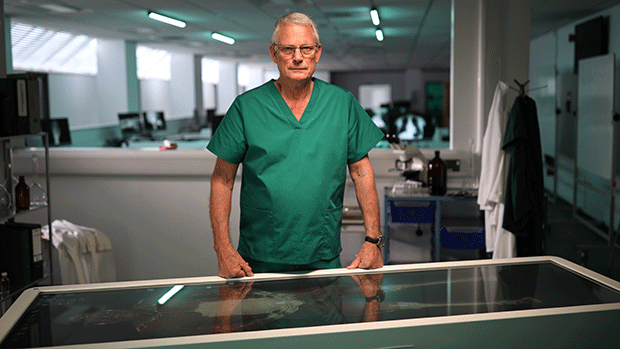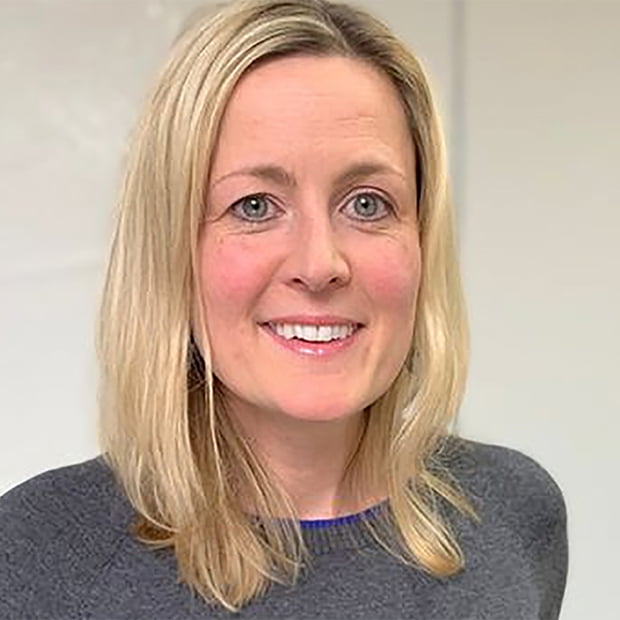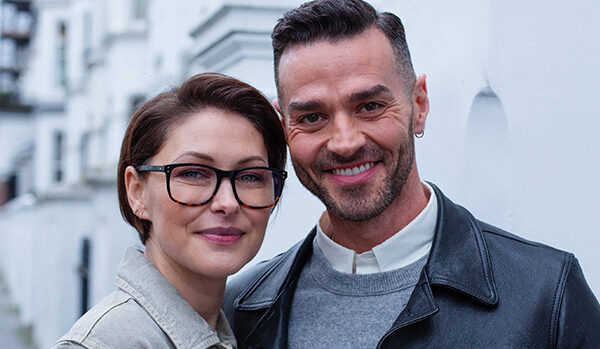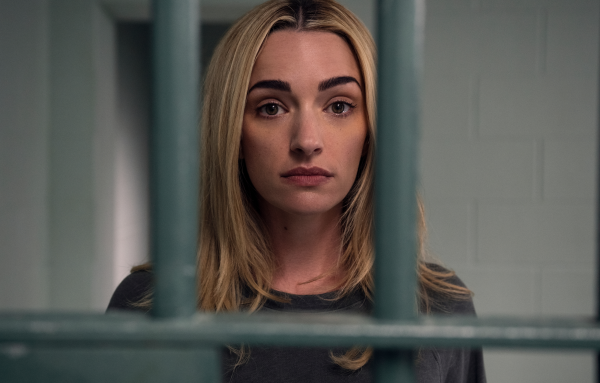
In the first of a two-part vox pop series we ask true crime producers whether the genre, having previously bucked the trend for declining cable subscriptions, is also immune to current commissioning downturns on both sides of the Atlantic.
The Truth About My Murder

Sian Price
Sian Price, creative director, Yeti Television (UK)
Recent commissions – The Truth About My Murder (True Crime)
I would say it’s very polarised: high volume and low cost at one end or high-end box-set and feature docs at the other. There’s nothing in that middle ground. Trends in the box-set/feature space are that it has to be a lens on society, a moment in history or an issue, so it goes beyond just the horrific crime itself and says something more.
It’s incredibly tough to get anything greenlit – but we know this is a space that virtually all the PSBs and streamers are still keen to commission. The key is creative funding models so we are working much more closely with distributors, acquisitions people and overseas broadcasters for coproduction to get things away.
It has to ideally be an untold story. It needs exclusive or new elements – be that archive/police/access/family/victim access/a cold case re-opened. It needs to be greater than ‘just the crime’ – it needs to say something about a societal issue as well as being a great story. For some broadcasters it’s all about innovation in form and storytelling.
![]() Ari Mark, co-founder, Ample Entertainment (US)
Ari Mark, co-founder, Ample Entertainment (US)
Recent commissions – Beauty Queen Killer: 9 Days of Terror (ABC), Murder in the Heartland (Discovery+), Death by Fame (ID)
Buyers want tried and true, household names, but where producers get tripped up is assuming that means derivative or formulaic. The tricky part is shows still need to feel fresh and new, but that newness is less in the new crazy story no one has heard and more in the story everyone is a little familiar with but have never seen it told this way. Business-wise we’re experimenting with a self-financing model for some docs and series at Ample. We’re betting that our ability to make premium true crime and do it efficiently in-house could really change the game for us. Otherwise, it’s doing what we always do, hunting for what’s new and hoping to lead that charge, which is kind of the best part of the job.
We all know things are tough, regardless of what genre you work in. Less commissions are bad for all of us. But we are filmmakers, we are documentarians, we are scrappy producers. We are used to being uncomfortable, and out of that discomfort we can, and will, force great things into the world. True crime certainly isn’t immune, but it is a very reliable genre that promises something that no other genre really can – stakes. Crime is about life and death and the stories being told do matter. Audiences and commissioners understand that.
The best way to get a true crime series commissioned is unprecedented access to a person, story, or department, and then working with strong developers to create pitch materials that succinctly highlight exactly why that access matters.
 Harry Smyth, head of development, Screendog (UK)
Harry Smyth, head of development, Screendog (UK)
Recent commissions – The Jury: Murder Trial (Channel 4)
Firstly, the genre seems to be asking itself a question: how can it be bigger, better and most of all stranger than fiction? It feels like we’re in the post-Don’t F*ck With Cats age, where people want stories that beggar-belief to the point that if you wrote them as a drama they’d be too farfetched. Those are the spaces unscripted can get into that are inaccessible to drama, and audiences seem to be craving that. It also feels like the genre is now less about revisiting cases and characters everyone knows about, and more about finding ones people haven’t heard of before. It’s like people want to feel a sense of ‘wow, how did I not know about this?’ A never-before-told story has more value now than it ever did.
I think everything is tough at the moment, but there is reason to believe the genre can weather the storm – just recently Channel 4 had hits with The Push: Murder On The Cliff, To Catch A Copper and our own series The Jury: Murder Trial. Simply put, there will always be an appetite for true-crime – but there’s definitely still room for innovation in terms of how these stories are told, and finding those innovative tweaks to the genre is probably a good way for producers to inoculate themselves against the difficult times the industry is facing.
Stories must sustain multiple episodes, and a USP or strong point of difference is more important than ever before. It’s no longer enough to have a great story, you’ve also got to have an original way of telling it. The genre is saturated, so those projects with a really unique story-telling device are the ones that seem to be getting most traction. The Jury: Murder Trial offered a unique angle on crime by approaching it through the eyes of jurors. Perhaps it chimed with audiences because, whenever we consume crime content, we are also trying to work out the truth – just like a jury. We hope to return with a new series based around a gripping, relatable and socially relevant case soon.
![]()
Jenny Daly, president, Critical Content (US)
Recent Commissions – Deadly Waters with Captain Lee (Oxygen), Catfish (MTV)
For a long time, it seemed like it was tough to sell anything that wasn’t an adjudicated homicide story. Of course there are always exceptions, but for a while it felt like it was all murder all the time. That is definitely changing, especially with the recent success of some limited series like Quiet on Set. One thing we keep hearing is: “What is an unexpected twist on a story you only thought you knew?” Exclusive access and never seen/heard archival materials is also something the networks always seem to be looking for.
It’s tough out there because it isn’t a secret that crime sells. It seems as though everyone is trying to get into the true crime business. So, the marketplace is saturated with every type of crime project you can imagine. Yes, there is an appetite for more and more true crime, but the bar is always getting pushed higher and higher. And, at the end of the day, there are only so many slots for new series.
For your traditional adjudicated crime series where every hour is a retro tale of a new homicide story, then I really believe that a fantastic title and logline is worth its weight in gold. The title is arguably more important than the idea itself because truth be told, a lot of the ideas that get the greenlight are ideas that have been pitched by multiple producers, multiple ways, many times, and passed on. What cuts through is that awesome title and that nuanced logline with the perfect POV. Then of course, you need to prove that the concept actually works and that the cases exist and that there’s volume. Networks want to feel confident that there are many seasons worth of stories/cases out there in the world, before they trigger a series.
Then there are the other crime commissions where access and talent are everything. These are typically the more “premium” or “ripped from the headlines” limited series commissions. We’re talking access to people who have never told their story… access to prisons who have never allowed cameras behind their doors… access to archival materials that have never been released to the public. Tremendous and exclusive access that no one has ever been able to secure before will typically get buyers excited… but the story needs to be there, too.

Nancy Glass, CEO, Glass Entertainment Group (US)
Recent Commissions – Betrayal (ABC/Hulu), Murder In The 21st (A&E), Bitconned (Netflix), Kill Or Be Killed (Oxygen)
I think viewers and listeners are responding to richer, more layered stories. I also see networks changing their focus to expand beyond violent crime to include con artists, kidnappings, and cheaters. Stories that far too many people can relate to.
It is tough out there for everyone right now. But the audience for true crime seems to be growing because it’s a topic that gets to viewers both emotionally and intellectually. You are telling stories that are true, and nothing is as fascinating or as unpredictable as reality. When you have a rich story to tell, commissioners will buy, and viewers will find you.
There are two things that seem to be working: the first, a story no one knows with lots of unexpected twists and turns. The other is IP, you can sell a re-examination of a well-known crime if you have something exclusive or, can present it in a new way. For example, we were able to sell a Jeffry Dahmer doc because we had the only interview with him. On The Jury Speaks we revisited major cases from the point of view of the jury and learned that they didn’t see things the way people thought they did.








